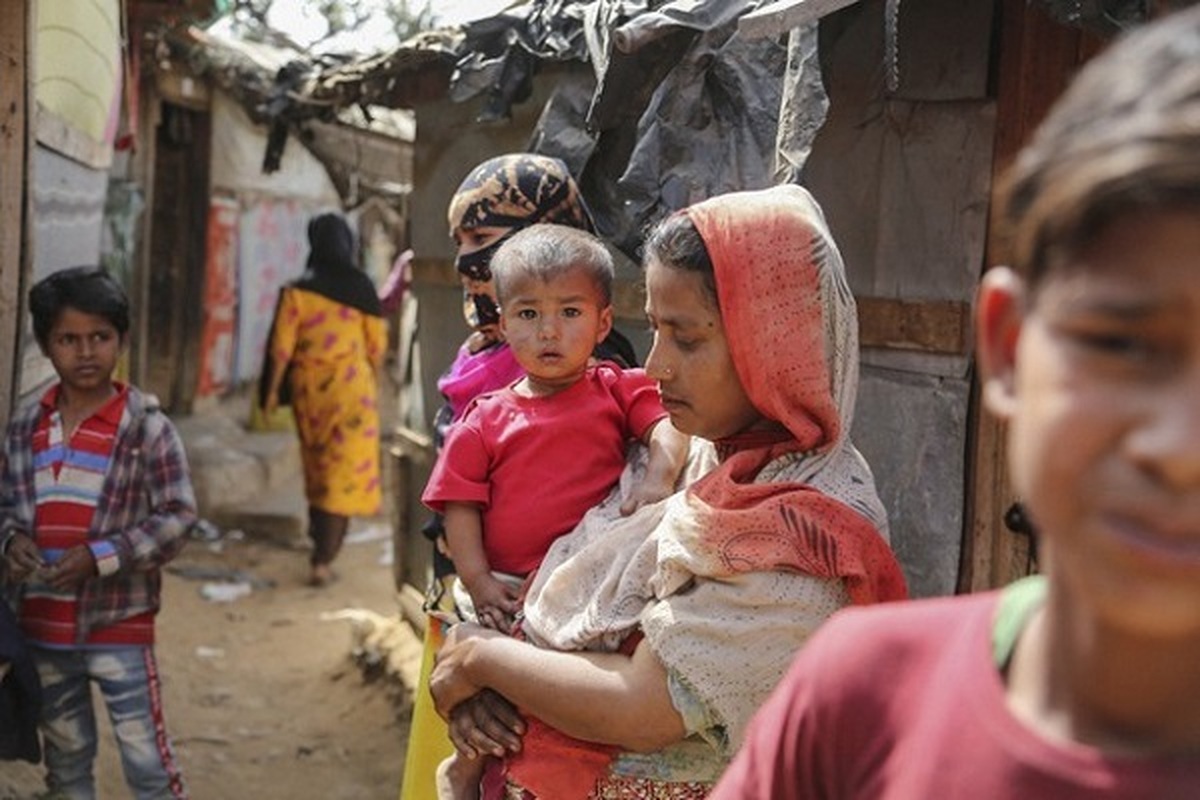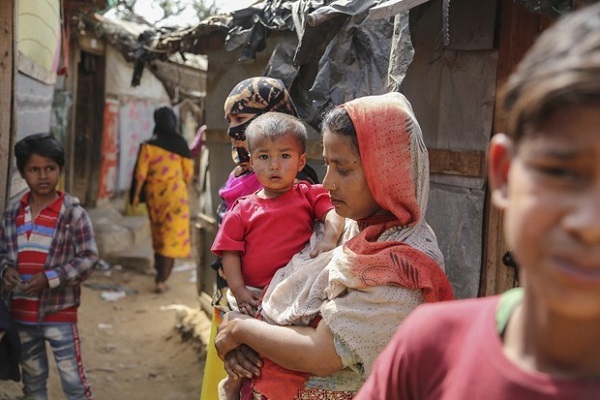Persecution of Rohingya Refugees Part of India’s Anti-Muslim Crackdown


Human Right Watch said the Indian campaign reflects a wider pattern of persecution against Muslims under Prime Minister Narendra Modi’s Hindu nationalist government.
Since May, Indian authorities have deported at least 192 Rohingya registered with the UN refugee agency into Bangladesh, while 40 others were reportedly beaten aboard an Indian naval ship and forced to swim ashore near Myanmar.
Dozens more have fled India fearing arrest.
“The Indian government’s expulsion of Rohingya refugees shows an utter disregard for human life and international law,” said Elaine Pearson, Asia director at Human Rights Watch. “These refugees fled atrocities in Myanmar only to face demonization and abuse in India.”
Survivors told Human Rights Watch that police and security forces assaulted them, seized their money and UNHCR documents, and forced them across borders.
A woman expelled from Assam said her husband was slapped so hard by Indian border guards that he lost hearing in one ear.
In Tripura, police allegedly beat a four-year-old girl before pushing her family into Bangladesh.
Another group of 40 Rohingya Muslims and Christians described being flown from Delhi to the Andaman Islands, beaten by naval officers, and then forced into the sea near Myanmar.
And in Jammu, authorities have demolished shelters and arrested at least 30 Rohingya, accusing them of being “Bengalis” and ignoring their UN registration cards.
Why the Rohingya fled Myanmar
The Rohingya are a stateless Muslim minority from Myanmar’s Rakhine state, long denied citizenship and basic rights.
Since 2017, the Myanmar military has carried out a campaign of killings, mass rapes and village burnings that the UN has described as a “textbook example of ethnic cleansing” and possible genocide.
Nearly a million Rohingya now live in squalid camps in Bangladesh, while smaller communities sought refuge in India, Malaysia and other countries.
For many, India appeared a safer option given its historic role as a host for refugees from Tibet, Sri Lanka and Afghanistan. But under the current government, the Rohingya have faced suspicion and hostility.
The Modi government argues that Rohingya are “illegal immigrants” who pose security risks, citing alleged links to extremism.
Officials maintain that India cannot absorb more refugees given its population pressures and has the sovereign right to regulate who enters and stays in the country.
Read More:
The Home Ministry has repeatedly told parliament that Rohingya are “a threat to national security” and should be deported, despite their UN refugee status.
But critics say these claims lack evidence and reflect a broader anti-Muslim agenda. Rights groups note that instead of screening individuals for genuine security concerns, authorities have carried out mass expulsions, collective punishments and arbitrary detentions.
Anti-Muslim crackdown
India hosts an estimated 40,000 Rohingya, about half of whom are registered with the UNHCR. But under the BJP government, Rohingya and other Bengali-speaking Muslims are branded as “illegal immigrants” and subjected to detentions, deportations and raids.
The expulsions fit into a wider pattern of anti-Muslim policies in India from discriminatory citizenship laws to violent eviction drives in Assam that have left Muslim minorities increasingly vulnerable.
Although India is not a signatory to the 1951 Refugee Convention, it is still bound by the principle of “nonrefoulement,” which forbids sending people back to countries where they risk persecution.
Despite this, India’s Supreme Court has sided with the government, dismissing reports of Rohingya abandoned at sea as a “beautifully crafted story.” A fresh hearing is due in September on whether Rohingya should be treated as refugees or “illegal entrants.”
Human Rights Watch warned that the expulsions have left those still in India living in constant fear. Many are too scared to go out, worried that they will be rounded up, abused and deported.
Read More:
The rights group has called on India to immediately stop the deportations, investigate the abuses and recognize the Rohingya as refugees.
Source: 5pillarsuk.com



